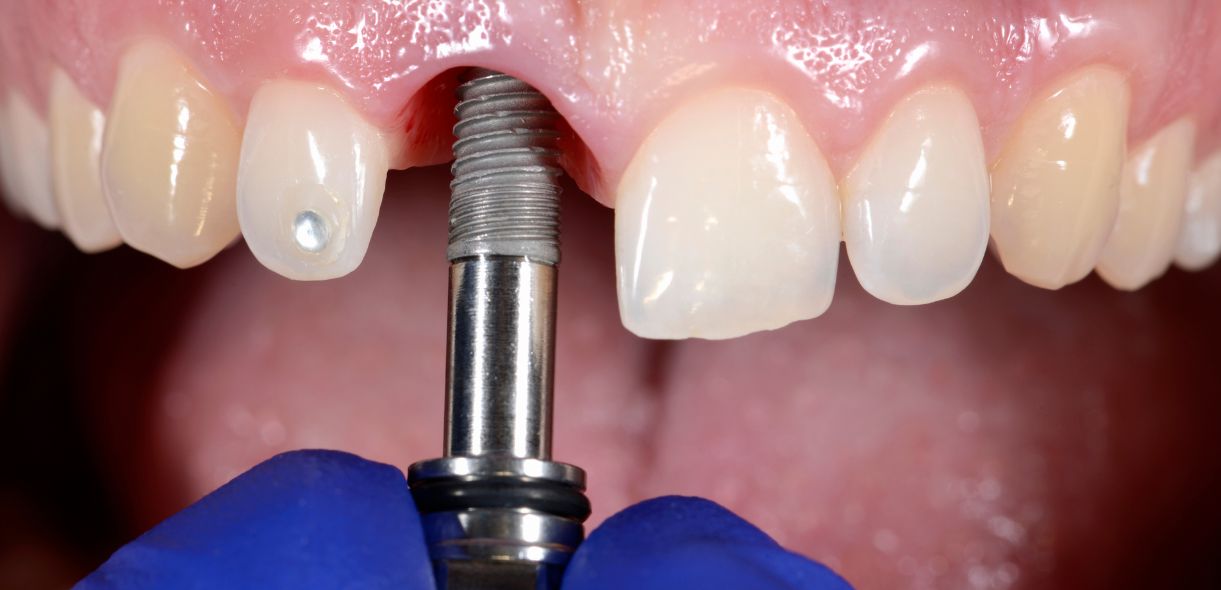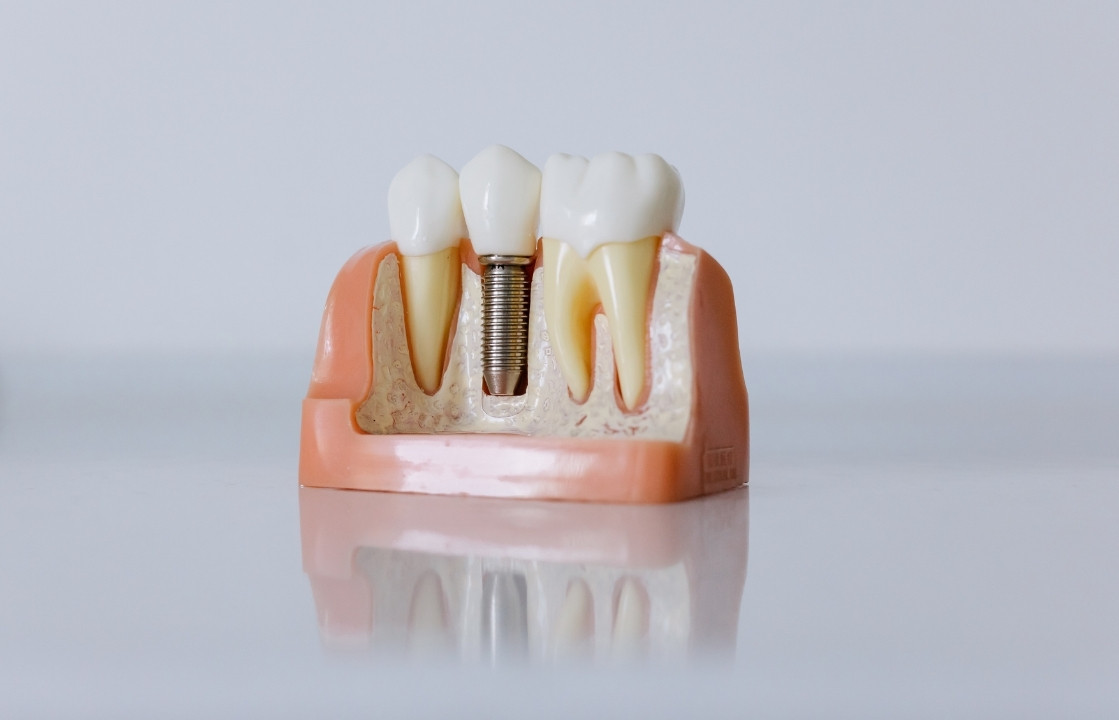$99 New Patient Special - Includes Exam and X-Rays.
What to Know About Dental Implant Complications and Risks

By Dentist At Plum Creek Kyle
Dental implants have revolutionized the world of dentistry, offering a permanent and natural-looking solution for missing teeth. Gone are the days of ill-fitting dentures or unsightly bridges. Implants, essentially screw-like posts surgically placed in the jawbone, act as tooth roots, providing a stable foundation for crowns, bridges, or dentures. However, like any medical procedure, dental implant comes with their own set of risks and potential complications. While the success rate is very high, with around 95% of implants lasting for over 10 years, being informed is key. This blog post will equip you with the knowledge you need to make an informed decision about whether dental implants are the right choice for you.
The Potential Dental Implant Complications
Infection
As with any surgery, there’s a risk of bacteria entering the implant site during the procedure or the healing phase. Improper oral hygiene, especially in the initial weeks, can significantly increase this risk. Keep an eye out for swelling, redness, throbbing pain around the implant, and a possible fever.
Peri-Implantitis
This is gum disease that attacks the tissue around the implant. Similar to gum disease affecting natural teeth, it’s caused by plaque buildup and can lead to bone loss around the implant. If left untreated, it can ultimately cause implant failure.
Nerve Damage
While uncommon, improper implant placement can damage nerves in the jaw. As a result, it leads to persistent numbness, tingling, or even pain in the area. This is why choosing a dentist is crucial.
Sinus Issues (Upper Jaw Implants Only)
For upper jaw implants, there’s a slight risk of accidentally puncturing the sinus cavity during surgery. This can cause facial swelling, pain in your sinuses, and even a runny nose. Fortunately, in most cases, a proficient dentist can address this by repairing the perforation and placing the implant correctly.
Implant Failure
While rare, implants can fail to integrate with the jawbone (osseointegration) or become loose over time. This can be due to various factors like underlying health conditions (e.g., uncontrolled diabetes), smoking habits, or excessive stress on the implant due to heavy chewing or grinding.
Bleeding
Some minor bleeding is expected after surgery due to the surgical procedure itself. However, excessive bleeding that doesn’t subside within a reasonable timeframe can be a concern. If you experience excessive bleeding, it’s important to report it to your dentist immediately for evaluation and further instructions.
Risk Factors of Dental Implant
Certain factors can increase your dental implant complications and risks. Here’s what to consider:
Smoking
- Hinders Healing: Smoking constricts blood vessels, limiting the flow of oxygen and nutrients needed for proper healing after implant surgery. This can lead to delayed healing and a higher risk of implant failure.
- Increases Infection Risk: Smoking weakens the immune system’s ability to fight bacteria, making you more susceptible to infections around the implant site. These infections can damage the bone and soft tissues supporting the implant, potentially leading to implant loss.
Uncontrolled Diabetes
- Impaired Healing: Diabetes affects how your body uses blood sugar, which can slow down wound healing. This can increase the risk of complications after implant surgery, such as delayed osseointegration (fusion of the implant with the jawbone).
- Increased Infection Risk: Diabetes also weakens the immune system, making you more prone to infections that can jeopardize the implant’s success.
Weak Jawbone
- Insufficient Support: If you’ve experienced significant bone loss in your jaw due to missing teeth or gum disease, your jawbone might not be strong enough to provide a stable foundation for the implant. This can lead to implant failure or place excessive stress on the remaining bone, accelerating bone loss.
- Bone Grafting Solutions: In some cases, bone grafting procedures can be performed to rebuild the jawbone and create a suitable environment for implant placement.
Certain Medications
- Compromised Healing: Some medications, like long-term steroid use, can interfere with bone healing and increase the risk of complications after implant surgery.
- Open Communication is Key: Be sure to discuss all medications you’re taking with your dentist, including prescription drugs, over-the-counter medications, and herbal supplements. This will allow them to assess any potential interactions or risks associated with your specific situation.
Overall Health
- Underlying Conditions: Certain health conditions, such as uncontrolled heart disease, can increase the risk of complications during or after surgery. These complications can range from excessive bleeding to problems with anesthesia.
- Transparency is Essential: Disclose your complete medical history to your dentist, including any ongoing health conditions and past surgeries. This information is crucial for them to determine if dental implants are a safe and suitable option for you and to develop a personalized treatment plan.
The Road to Recovery: What to Expect
Dental implant surgery is a transformative procedure that replaces missing tooth roots with biocompatible posts. While the surgery itself is a significant step, a successful recovery period is equally important for long-term implant success. Here’s a detailed look at what to expect on the road to recovery:
The First Few Days: Swelling, Discomfort, and Healing
- Swelling: Your face, especially near the implant site, may experience mild to moderate swelling. This is a normal inflammatory response and typically peaks within 48 hours.
- Discomfort: Some soreness or discomfort around the implant site is to be expected. Over-the-counter pain medication, as prescribed by your dentist, can effectively manage this discomfort.
- Bleeding: Minor bleeding at the implant site is common for the first 24-48 hours. Your dentist will provide instructions on how to manage any bleeding.
Essential Post-Surgical Care: Promoting Optimal Healing
- Pain Management: Your dentist will likely prescribe pain medication to keep you comfortable during the initial healing phase. Follow their instructions carefully regarding dosage and frequency.
- Oral Hygiene: Maintaining exceptional oral hygiene is critical to prevent infection and promote healing. Your dentist will advise on gentle yet effective cleaning techniques around the implant site. This may involve using a special soft-bristled brush and a specific mouthwash.
- Diet: For the first few days after surgery, stick to a soft diet consisting of lukewarm soups, mashed potatoes, and yogurt. Gradually introduce harder foods as your mouth heals, but avoid chewing on very hard or crunchy items that could put stress on the implant site.
- Rest: Adequate rest allows your body to focus its energy on healing and recovery. Plan to take some time off work or engage in strenuous activities in the immediate postoperative period.
Follow-Up Appointments: Monitoring Progress and Ensuring Success
It’s crucial to attend all scheduled follow-up appointments with your dentist. These appointments allow your dentist to monitor the healing process, check for any signs of infection, and ensure proper integration of the implant with your jawbone. Depending on your specific case, your dentist may remove any stitches used during surgery at one of these follow-up appointments. In some cases, a temporary restoration may be placed on the implant site while the healing process progresses. This temporary restoration will eventually be replaced with a permanent crown or other prosthetic tooth.
Dental implants present a transformative solution, empowering individuals by restoring confidence, enhancing oral health, and bolstering overall well-being. Understanding potential risks and complications is pivotal in making informed decisions alongside your dentist. Notably, the success rate of dental implants remains notably high, particularly when entrusted to skilled professionals. At Dentist At Plum Creek Kyle, our specialized service in Dental Implants Kyle Tx ensures meticulous planning, expert surgery, and diligent aftercare, effectively minimizing the risk of complications. Trust in our expertise to embark on your journey towards a revitalized smile and improved quality of life.





